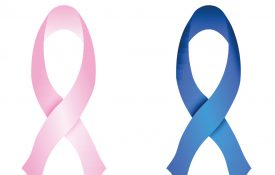-
Americans’ Eating Habits Take a Healthier Turn, Study Finds
The Wall Street Journal: Years of warnings by health officials and grim news on the bathroom scale appear to finally be having an impact on the nation's eating habits. While there is no sign the high level of obesity has fallen, Americans say they are consuming fewer calories and cutting back on fast food, cholesterol and fat. Working-age adults consumed an average of 118 fewer calories a day in the 2009-10 period than four years earlier, according to a study released Thursday by the U.S. Department of Agriculture.
-
Poor People Judge Harm-Doers More Harshly
Pacific Standard: How harshly do you judge someone with a habit of hitting people? How about a lout who engages in sexual harassment? Newly published research suggests the answer depends in part on how well you’re doing financially. A study published in the journal Psychological Science finds people with low incomes judge wrongdoers more severely. French researchers Marko Pitesa and Stefan Thau report this dynamic only applies to ethical issues involving injury or loss, and suggest it reflects the poor’s “lower ability to cope with the effects of others’ harmful behavior.” Read the whole story: Pacific Standard
-
Psychologists: Getting Liberals to Agree Really Is Like Herding Cats
Scientific American: When he was President, Bill Clinton famously (and perhaps apocryphally) complained that getting Democrats to agree on a course of action was like herding cats, while the Republicans didn’t seem to have this problem. All political parties are large coalitions of people with varied interests and beliefs, but is it possible that ideological differences between the parties could play a decisive role here? A new paper by researchers at New York University, in press at Psychological Science, suggests that the answer is yes. A large body of psychological research has shown that people tend to overestimate how much others share their beliefs, feelings, and practices.
-

Altruistic Acts More Common in States With High Well-Being
People are much more likely to decide to donate a kidney to a stranger — an extraordinarily altruistic act — in areas of the United States where levels of well-being are high, researchers find.
-
The Option to Quit Can Make You More Determined
Stephen King’s novel, Carrie, was rejected 30 times before it finally got published — and launched a legendary literary career. Thomas Edison failed thousands of time before he finally perfected the light bulb. Most of us aren’t aiming to create a revolutionary invention or get a novel published. But we all have professional goals, and will face at least some degree of failure or hardship in achieving them. In some cases, we have no choice but to keep trying. Giving up on a complex project you’ve been assigned at work could cost you your job.
-
Ink on Paper: Some Notes on Note Taking*
I went to college long before the era of laptops, so I learned to take notes the old-fashioned way: ink on paper. But that does not mean my note-taking system was simple. Indeed it was an intricate hieroglyphic language, in which asterisks and underscoring and check marks and exclamation points all had precise meaning, if only to me. It’s a lost art. Many college students have some kind of electronic note-taking device nowadays, and most will swear by them. And really, only a Luddite would cling to pen and notebook in the 21st century. Typing is faster than longhand, producing more legible and more thorough notes for study later on. But has anyone actually compared the two?

